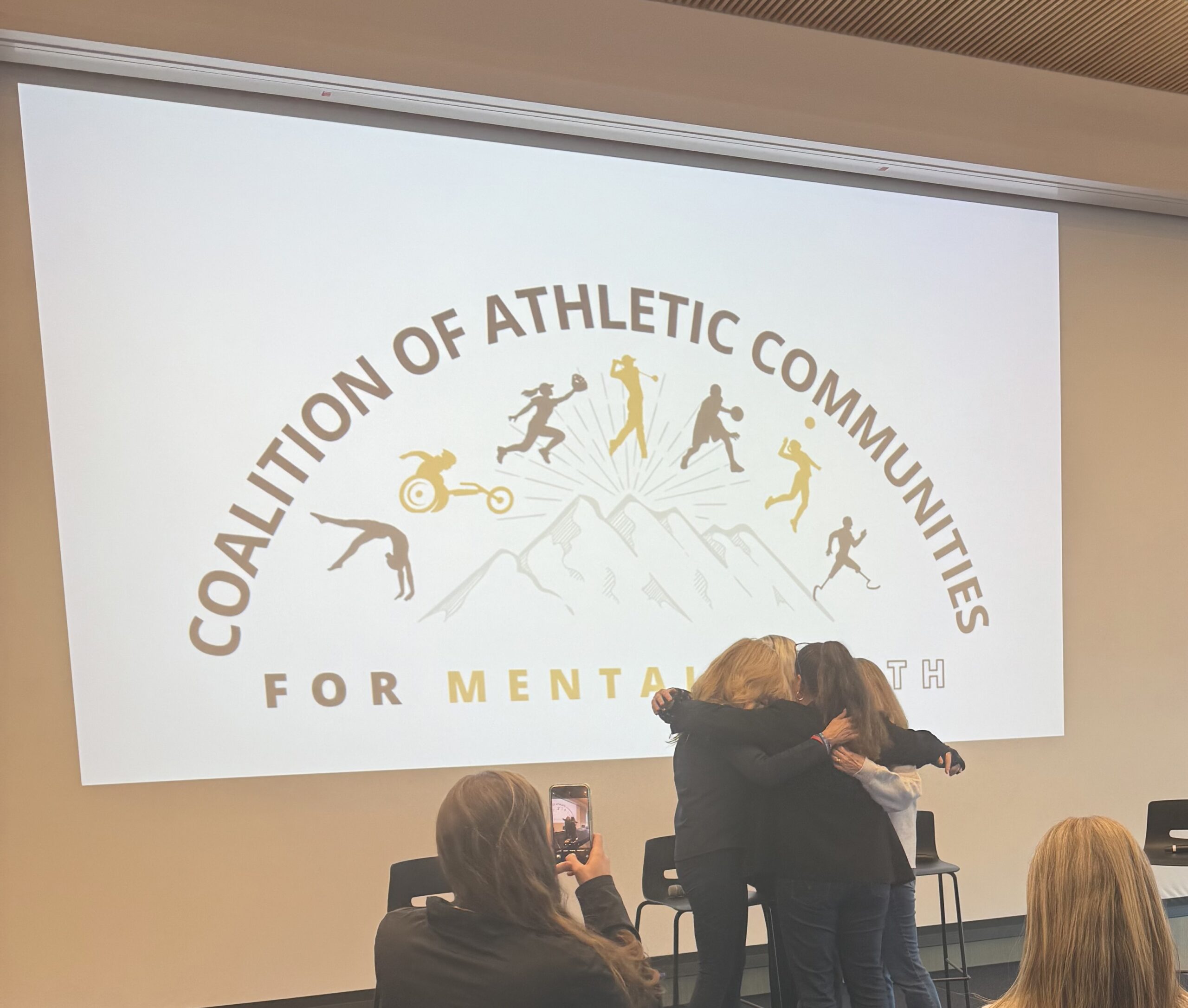I stumbled upon an Instagram post about the first-ever Coalition of Athletic Communities for Mental Health (COAMH) conference, and it felt like destiny. Despite it being held in Denver, CO and not in my original budget, I knew I had to be there. A conference focusing on mental health in athletes was long overdue, and I left feeling incredibly inspired and hopeful.
Why I Attended the First-Ever COAMH Conference
Being a club coach in youth sports is a job often underestimated. However, I take great pride in my work and how I get to do it. I felt compelled to attend COAMH to grow both as a coach and a business owner, and I’m excited to implement the takeaways.
Being in a room filled with like-minded and passionate individuals dedicated to raising awareness and support for mental health in sports was one of the best moments in my career. It was a privilege to be a part of an event so full of hope for our future generations. I gained valuable perspectives from mental health professionals, college sports leaders, collegiate and professional athletes, parents, and nonprofit organizations.
3 Key Takeaways from COAMH
I’ve increasingly felt the need to deepen my knowledge about mental health, especially in the context of sports. While I’m not a parent of a youth athlete, I’ve observed concerning trends in youth sports that I find detrimental to the players and parents.
Kids are struggling with mental health challenges at an earlier age and higher rate than ever before. However, we have the power to change this by breaking the stigma, creating a clear language around mental health, and ensuring our kids know who they are and that they are loved outside of their sport and accomplishments.
1. Breaking The Stigma
Mental health stigmas exist and seem particularly amplified in the sports world. As a society we still have progress to make in regard to how taboo the term “mental health” is. There’s often a layer of shame associated with discussing mental health in sports—a competitive, perfection-driven environment that often encourages a “suck it up” mentality. It’s time to normalize these conversations and provide real support for our athletes.
2. Creating a Clear Language Around Mental Health
The language we use around mental health is crucial. If we can establish clear and consistent language around mental health, we can break down barriers and provide tools to address anxiety, depression, suicide, and eating disorders. There’s a misconception that openly talking about these issues will somehow cause them to spread. However, I believe the contrary—providing consistent, educated and transparent conversations with clear language around this topic will empower athletes to feel more comfortable asking for help and identifying when they’re struggling.
3. Fostering an Identity Outside of Sport and Achievements
It is no mystery that we live in an achievement-oriented world where grades and scholarships often define our worth. This constant pressure to strive for excellence with little room for mistakes can be overwhelming for kids, especially teens navigating hormonal changes. It’s rare for kids to have the space to simply be kids, use their imagination, or be given free time for their other hobbies and needs. Better yet to be recognized for their effort, ability to bounce back from mistakes, or showing kindness to their classmates and teammates. I believe fostering an identity outside of sport supports the whole athlete, reminding them they are more than their achievements. It also provides a vital outlet and tool in case of injury or hardship.
There were many special moments at COAMH, but I hope these takeaways give you a sense of the importance of speaking openly and more confidently about mental health in athletics. I encourage you—parents, players, coaches and guardians alike—to join the conversation and make a difference.

